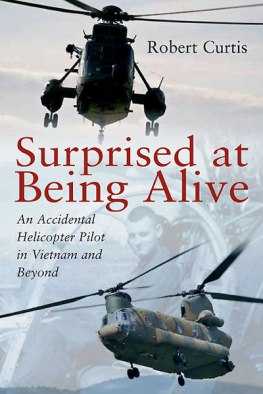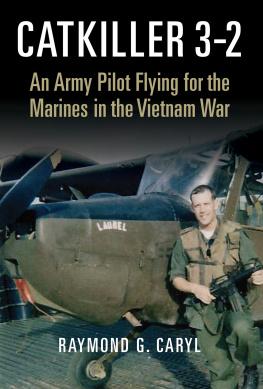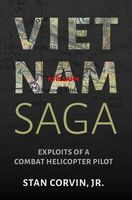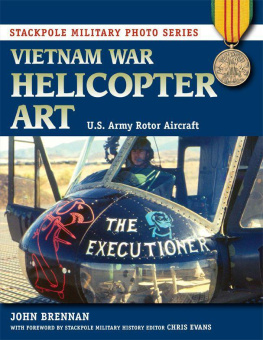

Published in the United States of America and Great Britain in 2014 by
CASEMATE PUBLISHERS
908 Darby Road, Havertown, PA 19083
and
10 Hythe Bridge Street, Oxford, OX1 2EW
Copyright 2014 Robert F. Curtis
ISBN 978-1-61200-275-0
eISBN 9781612002767
Digital Edition: ISBN 978-1-61200-276-7
Cataloging-in-publication data is available from the Library of Congress and the British Library.
All rights reserved. No part of this book may be reproduced or transmitted in any form or by any means, electronic or mechanical including photocopying, recording or by any information storage and retrieval system, without permission from the Publisher in writing.
10 9 8 7 6 5 4 3 2 1
Printed and bound in the United States of America.
For a complete list of Casemate titles please contact:
CASEMATE PUBLISHERS (US)
Telephone (610) 853-9131, Fax (610) 853-9146
E-mail: casemate@casematepublishing.com
CASEMATE PUBLISHERS (UK)
Telephone (01865) 241249, Fax (01865) 794449
E-mail: casemate-uk@casematepublishing.co.uk
Now this is no shit,
There I was, 10,000 feet,
I had a pocket full of nickels and
There wasnt a soft drink machine for miles,
So I turned to my copilot and said, Alice,
When all of a sudden, there was Plexiglass flying everywhere.
The men, they were scared, but not me.
Down below us we saw a man on a bicycle.
We knew he was going to church,
Because it was Sunday.
So, we rolled in on him.
It was ten to one!
But we finally got that little SOB
Typical flying war story, circa 1971
This book is dedicated to the maintenance men who kept all the aircraft I flew whole through their non-stop labors. I trusted you with my life every day and your skill validated that trust. It is dedicated to the crewmen who flew with me and trusted me to bring them back as I trusted them to keep the helicopters ready, because after all, the aircraft was theirs, not mine. It is dedicated to the pilots who sat in the other seat while I flew and vice versa, each of us trusting the others skill and judgment. It is dedicated to the wives and families that watched us all go out in our fragile machines full of potential single-point failures. Watched us go and hoped for our return. Finally, it is dedicated to those who ran out of luck and superstition. We miss you.
PROLOGUE
A perfect flight is usually one you dont remember. When you are old, and if you are a military pilot, should you live to be old, you discover that you tried your entire flying career for perfect flights. Sometimes, very rarely but sometimes, you have a perfect flight in that everything you did was spot onyou could do no wrong that day. But somehow, some of them, when you were not that good, some of the less than perfect ones, stick in your mind even when you are well past flying and should have forgotten them
The thing is, for helicopter pilots at least, war stories dont even require a war. War is only marginally more dangerous for transport helicopter pilots than peace is, since there is very little difference in wartime missions and peacetime missions. the nights are just as dark, the weather just as bad, the loads just as heavy. today you cant even say that you only get shot at in wartimeget close enough to someones marijuana patch stateside and you will take incoming; maybe not a missile, but an assault rifle shot is still incoming fire. And its not just gunfireflying a premature baby on a medevac from Camp Lejeune, North Carolina, to Norfolk, Virginia, at night, in bad weather, is just as terrifying as doing a night combat resupply to a mountain top in Vietnam.
Someone once told me that the primary, and perhaps only, difference between a fairy tale and a war story is that a fairy tale starts off with, Once upon a time, a long time ago while a war story starts off with, Now this is no shit, there I was At some point in my military life I figured out that both fairy tales and war stories are equally true.
Now, this is no shit, for serious aviators, especially military aviators, flying is far closer to being a religion than being a job. All the things necessary to a religion are present, except perhaps a deity. But as with many peoples personal religion, a deity is not really necessary; all you need are rituals to provide purpose and comfort and therefore a reason to believe. the comfort comes through prayer, singing, and the promise of better things to come. the purpose is to do something most people cannot, be it getting to heaven or being respected by your brother pilots.
If flying is a religion, then the instructor pilots are the priests. Instructors show you the way to come through the trials and tribulations of the present into a better future, or any future at all, period. they teach you which sins are venial and which are mortal. they introduce you to the secrets of the order, test your virtue during your check flights to determine if you are worthy, and instill the rituals of aviation into you until no pilot can fly without performing the proper ceremonies. If you cannot meet the instructor priests stern tests or if you show unorthodox tendencies, they will excommunicate you as a heretic. Learn well, show the proper attitude and you may become one of them. And, if you make a mistake that kills you, they will come to your memorial service and sing about God guarding and guiding the men who fly through his great spaces of the sky.
The Holy Books of Flying are the operator manual for your aircraft, The Federal Aviation Regulations (FAR), the Aeronautical Information manual (AIM), International Civil Aviation Organization (ICAO) Regulationsthe international version of the FAR if you are going to be flying outside the US, the military directives which each service issues by the pound, and texts on weather and aerodynamics. The novice studies them to learn the right path and the masters return to them often to maintain their orthodoxy.
Most religions teach that if one follows the path laid out in the Holy Books and the guidance of the Holy men, the future will be some form of paradise. Flying also preaches that the path to heaven or the future or, as noted, any future at all, lies in complete orthodoxy: the following of the rules, a course of actions that spells out precisely how to behave in all situations and thereby know exactly what will happen in the immediate future. the entire process of flight training, therefore, becomes teaching the student pilots how to plan and predict the future.
Any pilot who has been flying for a number of years can tell the future, a fact self-evident in that the pilot is still alive. But in learning to predict the future, pilots, like the very religious, become the most predictable of people. After all, a pilot must know in advance when he will start the engine, which route to taxi the aircraft, where to takeoff, to what altitude to climb, at what speed to climb, the route to follow, how much fuel will be burned en route, where the landing will be, how the landing will be done, and finally which route to taxi the aircraft to the gate or ramp spot. All events are timed to the second and each has a fallback, in case the first plan does not work. there is another third fallback in case the second fallback doesnt work either, and finally, the pilot knows how to crash the aircraft in the way most likely to let the crew survive if nothing at all works.
In other words, the pilot has been trained in what to do and how to react to all possible situations. the Holy Books give him THE WORD and the instructor/priests have drilled the pilot and tested the pilot and passed judgment on the pilot until, at last, the pilot is prepared and blessed. But unlike most modern religions, the price of failure to follow the Holy Writ of Aviation is not paid in the future on some judgment day, it is often paid right then and there if the pilot does the wrong thing during a failure or flies into unsuitable weather for his machine and/or level of skill and training, or he just loses concentration for a moment. more likely though, he will pay when he strays from the path of righteousness and tries some-thing on his own, something not taught him by the instructors/priests. the pilot becomes a heretic; that is, he gets creative, which brings us back to war stories.
Next page












